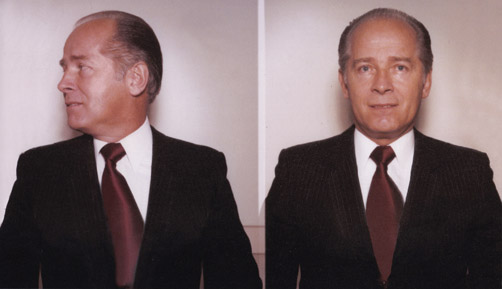Have movies that glorify hit men getting away with murder inured us to the victims, their families, and the thwarted justice system? Let alone when real cases inspire notable films? Martin Scorsese’s The Departed (2006) was just the first of several influenced by the life and many deaths of Boston gangster and FBI informant Whitey Bulger. His local infamy exploded into national awareness when he was finally arrested in 2011 for 19 counts of murder after 16 years on the lam. At age 83, he was living in quiet Santa Monica, California, retired with his younger girlfriend.
Documentarian Joe Berlinger soberly shifts the emphasis to the collateral damage and police corruption, even as the colorful characters, with rich Boston accents, and their crimes almost overwhelm his larger story. It’s less focused on the kind of original investigation he helped undertake in his Paradise Lost trilogy—The Child Murders at Robin Hood Hills (1996), Revelations (2000), and Purgatory (2011)—what with seemingly every crime reporter in Boston having written a book on Bolger and his cronies.
Berlinger efficiently integrates archival records (including government and gang organizational charts, trial evidence, audio and surveillance footage) into fresh interviews with lawyers, witnesses, co-conspirators, whistleblowers, and, most wrenchingly, the victims’ families, along with realistic trial reenactments. Interspersed are telephone calls from Bulger in jail, full of fury, insisting he’s not a rat.
The capture of the FBI’s Most Wanted No. 2 (after Osama Bin Laden) raised the hopes of justice for victims’ families, who had been meeting throughout the decades to bolster their patient wait, and their emotions anchor the film. Liquor store owner Stephen Rakes relives his confrontations with Bulger as extortion demands kept escalating, an example of how the Irish-dominated Winter Hill Gang terrorized neighborhood businesses.
Rake is one of the few civilians who could directly link Bulger to a pattern of violent threats. His bravery in speaking out, in these interviews and in court testimony, wrought horrible revenge. Other families with a personal stake in Bolger’s trial are the brother of Deborah Davis, a jealous gangster’s girlfriend, and the son and wife of Michael Donahue, who happened to give the wrong person a ride home at the wrong time.
The criminals from high levels of the Winter Hill Gang are vividly out of central casting, with biographical sketches that match Bolger’s from childhood, through juvenile crimes to hardening in prison. The men reenact their trial testimony for the prosecution, with some smirks, as they casually describe their work as fellow hit men, making whatever plea deals they made pretty stomach churning (and reminiscent of scenes from The Godfather). Bolger proudly differentiates himself from the others: “I never cracked in prison.”
The FBI’s historically weak record with organized crime, ever since J. Edgar Hoover in the 1960s denied the existence of Cosa Nostra (as seen in archival clips), provides the context for the agency’s awkward desperation to play catch up by using informants as a short cut for failed undercover efforts. It enlisted Bolger to (conveniently) inform on (and take out) his Italian competition. For all the complicated tracing of FBI and prosecutorial misconduct, most of the current federal attorneys are a bland bunch to tell apart, even when they re-present their opening and closing arguments. One admits about Bolger: “He used the FBI and the FBI used him.”
Cutting through the overwhelming mass of criminal details and personalities are two impressive whistle-blowing retired law enforcement officers, Robert Fitzpatrick, an FBI agent with a long record of high ethics, and Bob Long, formerly with the Massachusetts State Police, whose surveillance of a stolen car ring was derailed when it intersected with the FBI’s protection of Bolger. The cloak and dagger suspense of how a case was built to prove this corruption unfolds through a surprise smoking gun—a top secret memo implying Bolger’s informant status that is found with a flourish.
The broader context of the FBI’s use of informants, specifically through the Top Echelon Informant Program, is usefully provided by victim’s advocate Angela Clemente, who has combed through many files obtained through the Freedom of Information Act. She knowledgeably interprets that Bolger was handled differently than legitimate and important informants, whose involvement had to be approved as high up as the FBI director. More background from her investigations on how these informants have continued their violent ways while under Federal protection would have helped raise the documentary higher than this head-shaking true crime story, and it would become more like The System With Joe Berlinger, the director’s Al Jazeera America series targeting ongoing problems within the American justice.
The high-level corruption that evidently protected Bolger is personalized through his FBI handler John Connolly, who was charged with tipping him off to escape, and on through the revelations of his trials and incarceration for murder, just overturned by a Florida appeals court. The Florida connection also has a surprising intersection with yet more crime films. The 1981 murder of Roger Wheeler, owner of World Jai Lai, also figured in Alex Gibney’s documentary and in George Hickenlooper’s fiction feature . Though the slippery slope between white collar crime and murder is not explored enough here, the close lens on the victims keeps the human toll admirably front and center, and probably will not be the focus of more upcoming fictionalizations.







Leave A Comment